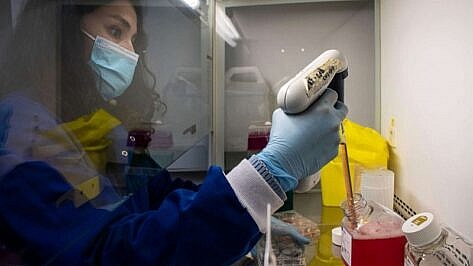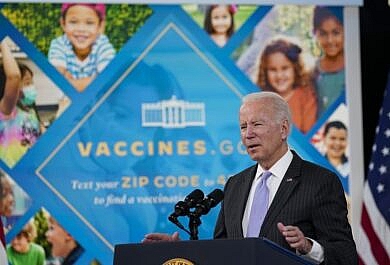Monoclonal antibody therapy (mAbs) is an effective treatment option for people recently infected with COVID-19 and experiencing symptoms.
Summary
Monoclonal antibodies are synthetic versions of the body’s natural defenses against infections. Monoclonal antibody treatments are administered through IV infusion or injections. Any COVID-positive person experiencing symptoms, vaccinated or unvaccinated, should consult their doctor in case mAbs treatment is right for them. As of January 19, 2022 the National Institutes of Health has restricted mAbs treatments to high risk COVID-positive patients.
Monoclonal antibodies can reduce hospitalizations and deaths by 70-85%, according to the National Institutes of Health. However, COVID-positive people experiencing symptoms need to begin treatment early in infection for mAbs to be effective. Limited testing availability and the limited mAbs supply are the biggest factors preventing patients’ ability to get treatment in time.
Three companies have produced mAbs treatments: Eli Lilly, Regeneron, and GlaxoSmithKline/Vir Biotechnology. All three were very effective against the Delta variant that spread from August-December 2021. However, Regeneron and Eli Lilly’s treatments were found to be ineffective against Omicron. Omicron now makes up 99.9% of infections. On January 24, 2022 the FDA revised guidance to halt shipments and limit use of Eli Lilly and Regeneron treatments.
GlaxoSmithKline-Vir’s therapy – sotrovimab – is effective against omicron but supply is extremely limited. The federal government purchased 600,000 additional doses in January but they may not be able to distribute these widely until March 2022.
![]()
- The Washington Post wrote an “analysis” of the GOP reaction to the FDA’s limiting of the Regeneron and Eli Lilly treatments.
- The analysis, and others like it, lambast conservatives for their openness to “alternative and often-unproven” treatments like Ivermectin and hydroxychloroquine.
- The Post baselessly claims all mAbs treatments are ineffective against Omicron.
- The Post made no distinction between the mBas treatment that is effective against Omicron– sotrovimab – and the ones that are not – Eli Lilly and Regeneron.
![]()
- Fox News interviewed Gov. Ron DeSantis (R-FL) who defended his focus on mAbs and criticism of the Biden Administration’s mAbs halt.
- Fox News also reported on the partisan skirmishes between DeSantis and Biden spokespeople.
- However, neither Fox News article nor Gov. DeSantis made distinctions between the mAbs that work against omicron (sotrovimab) and the ones that don’t (Eli Lilly and Regeneron). Florida argues Regeneron works for omicron – but Regeneron itself doesn’t even believe that. If Regeneron was seeking profit, why do they insist their product doesn’t work?
- Megan McArdle, the libertarian Washington Post columnist, offered a more nuanced take than the news side of the Post or its rivals at Fox News. McArdle defends conservatives’ desire for a “right to try” and fears the FDA is politicized and she criticizes the FDA’s “excessive caution.”
- However, McArdle believes in this instance the FDA has done the right thing. She explains in detail the differences between the three mAbs treatments and why Eli Lilly and Regernon’s treatments just don’t work anymore now that Omicron has taken over.
Conclusion
Neither the Washington Post nor Fox News offer the full story on monoclonal antibody treatments. The US has large quantities of Eli Lilly and Regeneron mAbs treatments that don’t seem to work against Omicron and not nearly enough of sotrovimab, the therapy that does work. Neither outlet really addresses the supply problem – for which the Biden Administration may deserve blame. Both outlets prefer to score political points instead of giving their readers the full story.
© Dominic Moore, 2022






